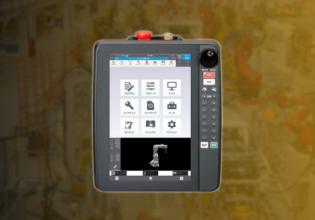M
Is anyone familiar with the MS SQL Server - Timeline patent case, and whether it has any relevance to automation systems (perhaps indirectly)?
To summarise the case briefly, a company called "Timeline" holds software patents on stuff used in "data marts and data warehouses". Various database vendors purchased licences from them to use their patents in their database products. Most companies (e.g. Oracle, etc.) purchased licenses which covered themselves *and* their customers. However, Microsoft decided to save money on the licenses by purchasing a limited license which only covered themselves, but *not* their customers. Users of MS SQL Server 7.0 or later may now face being sued by Timeline for not having purchased sub-licenses. Timeline has just won what appears to be a fairly final court case against Microsoft with regards to sub-licensing of these patents.
I have read various news articles on the Timeline case, but haven't been able to find out just what these patents cover (at least in terms that I can understand). I did see some mention that large scale ERP systems and other similar systems are likely affected by this. Some of the descriptions sounded like the type of data mining which I think is being used on historical data in large scale SCADA systems (although SCADA systems were not directly mentioned in anything that I read).
Microsoft testified in the court case that most of their customers who designed products around MS SQL Server or who purchased any such products would be affected by these patents. Many outside observers of the case seemed to feel this was being overly alarmist though. Timeline has said that they intend to start demanding license fees from users.
Anything that I have read seems to assume that the reader is familiar with the jargon and general business enviroment of large scale database and business systems. I would appreciate any links to articles which can explain this situation in terms which normal people can understand. Generally, I would like to understand what sort of database systems might be affected. (We can perhaps leave out the obvious replies that anything that doesn't use MS SQL Server is safe).
I would like to find out enough to know when I am treading on dangerous ground in this area. I don't expect to see Timeline demanding cash from *me*, but I would like to avoid doing business with a software company who might find themselves going broke over this issue.
I would like to add that anything in any reply (or in this or any other message) must not be taken as legal advice, etc., etc., etc. I've added this statement, because the one amusing thing in the whole story is that Timeline has declared that any MS SQL Server users who accepted Microsoft's assurances that there were no patent or license infringement problems with MS SQL Server are guilty of negligence and thus liable for extra damages. Since Microsoft isn't a law firm, they cannot offer valid legal advice, and anyone who accepted these assurances and acted upon them cannot therefore claim they were acting in good faith. That is a rather interesting point of view, and certainly not one that I would have thought of myself.
************************
Michael Griffin
London, Ont. Canada
************************
To summarise the case briefly, a company called "Timeline" holds software patents on stuff used in "data marts and data warehouses". Various database vendors purchased licences from them to use their patents in their database products. Most companies (e.g. Oracle, etc.) purchased licenses which covered themselves *and* their customers. However, Microsoft decided to save money on the licenses by purchasing a limited license which only covered themselves, but *not* their customers. Users of MS SQL Server 7.0 or later may now face being sued by Timeline for not having purchased sub-licenses. Timeline has just won what appears to be a fairly final court case against Microsoft with regards to sub-licensing of these patents.
I have read various news articles on the Timeline case, but haven't been able to find out just what these patents cover (at least in terms that I can understand). I did see some mention that large scale ERP systems and other similar systems are likely affected by this. Some of the descriptions sounded like the type of data mining which I think is being used on historical data in large scale SCADA systems (although SCADA systems were not directly mentioned in anything that I read).
Microsoft testified in the court case that most of their customers who designed products around MS SQL Server or who purchased any such products would be affected by these patents. Many outside observers of the case seemed to feel this was being overly alarmist though. Timeline has said that they intend to start demanding license fees from users.
Anything that I have read seems to assume that the reader is familiar with the jargon and general business enviroment of large scale database and business systems. I would appreciate any links to articles which can explain this situation in terms which normal people can understand. Generally, I would like to understand what sort of database systems might be affected. (We can perhaps leave out the obvious replies that anything that doesn't use MS SQL Server is safe).
I would like to find out enough to know when I am treading on dangerous ground in this area. I don't expect to see Timeline demanding cash from *me*, but I would like to avoid doing business with a software company who might find themselves going broke over this issue.
I would like to add that anything in any reply (or in this or any other message) must not be taken as legal advice, etc., etc., etc. I've added this statement, because the one amusing thing in the whole story is that Timeline has declared that any MS SQL Server users who accepted Microsoft's assurances that there were no patent or license infringement problems with MS SQL Server are guilty of negligence and thus liable for extra damages. Since Microsoft isn't a law firm, they cannot offer valid legal advice, and anyone who accepted these assurances and acted upon them cannot therefore claim they were acting in good faith. That is a rather interesting point of view, and certainly not one that I would have thought of myself.
************************
Michael Griffin
London, Ont. Canada
************************






